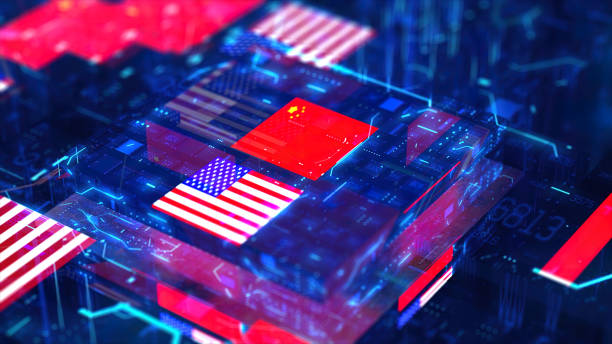The new export controls aim to stop the Chinese government from obtaining advanced chip technology to power their supercomputers.
The US has intensified its efforts to prevent the Chinese government from getting advanced computer chips used for military or surveillance purposes.
On Friday, the Commerce Department announced(Opens in new window) new export controls that will prevent companies from sending advanced processors or chipmaking equipment to China.
The White House fears that the technology may help the Chinese government develop supercomputers, which could be used to create nuclear weapons. It also worries about the possibility of human rights violations through surveillance.
The announcement stated, “The PRC has invested resources in developing supercomputing capability and seeks to be a leader in artificial intelligence in 2030.” Thea Rozman-Kendler, Assistant Secretary of Commerce of the United States for Export Administration, said this. It uses these capabilities to track, monitor and spy on its citizens and to fuel its military modernization.
The new export controls are outlined in a document (Opens in new window) and require both US and foreign companies to apply for a license before exporting cutting-edge chip technology to China. Most license applications will be “reviewed under a presumption denial” due to concerns that the technology could boost the Chinese military and undermine US national security.
Export controls aim to prevent the most advanced chips from being used in Chinese Supercomputers. They also aim to block US companies from shipping semiconductor-manufacturing tech to Chinese factories that build logic chips at the 16/14-nanometer node or lower unless they receive a license.
The rules also prohibit US citizens from assisting Chinese semiconductor factories without a license. The export control will also cover items made in foreign countries but with US software and machinery.
The Commerce Department warns that it will punish any foreign country trying to circumvent China’s export controls. The Commerce Department said that the rules made it clear that actions taken by foreign governments that hinder BIS (US Bureau of Industry and Security) from making compliance decisions will affect a company’s ability to access US technology via addition to the Entity list.
The new export controls highlight the simmering chip competition between the US & China. White House is concerned that the US will lose its competitive advantage in technology to China. Recently passed legislation in the US to boost domestic chip manufacturing by $52.7 billion.
Export restrictions have already started to affect some US tech companies. In August, Nvidia and AMD reported that the US had begun restricting shipments of their supercomputing-related GPUs to China.
The Chinese government responded by criticizing the US for blocking tech exports. The US politicizes and weaponizes trade and tech issues and engages with tech blockade, decoupling, and attempts to monopolize advanced technologies; a Chinese Foreign Ministry spokesman stated last month.




